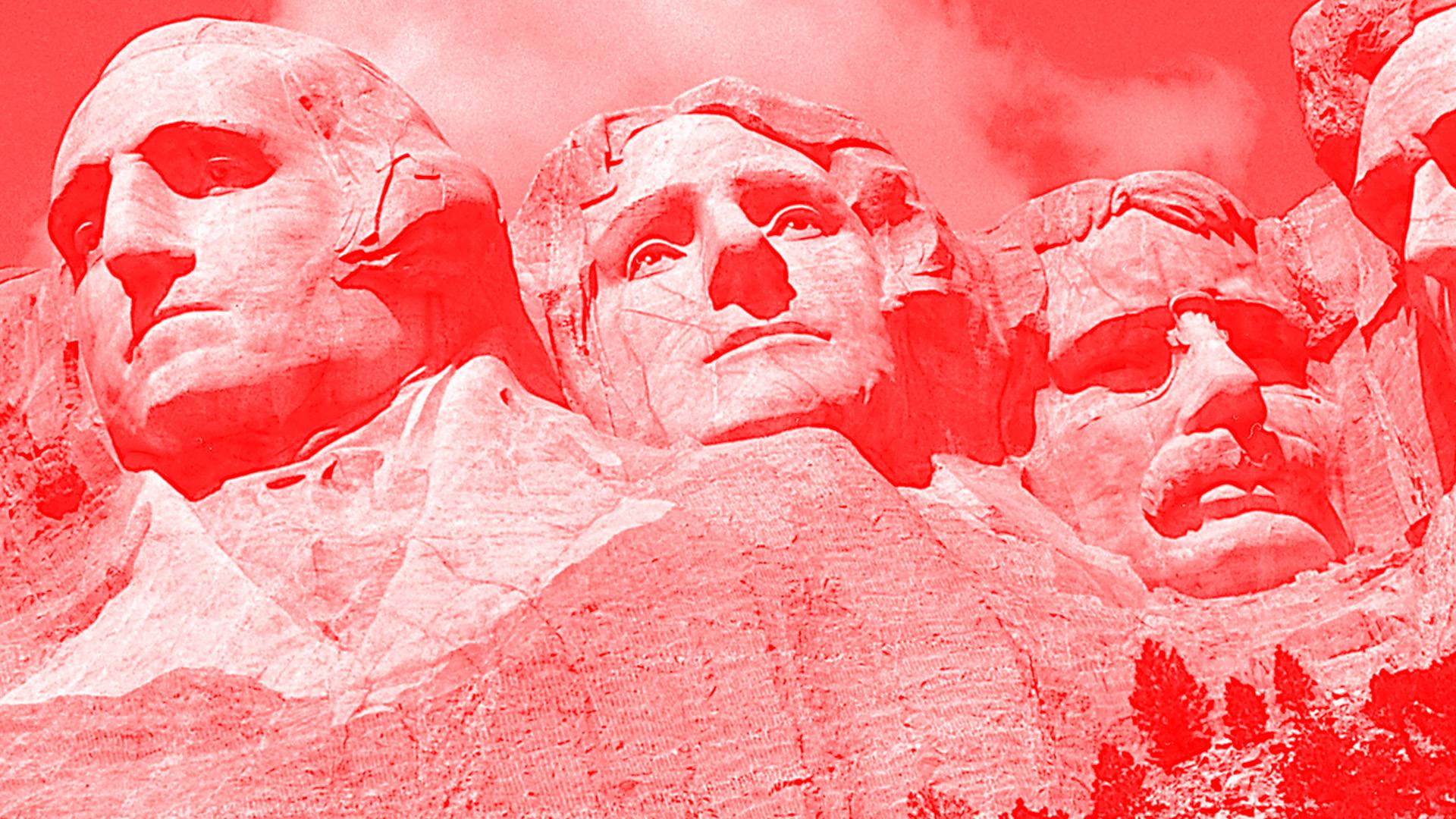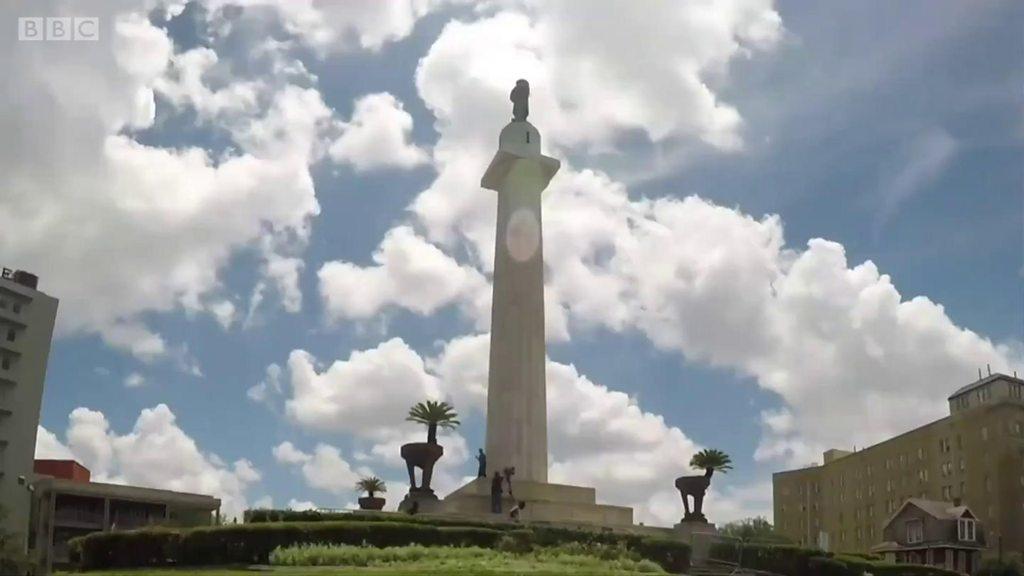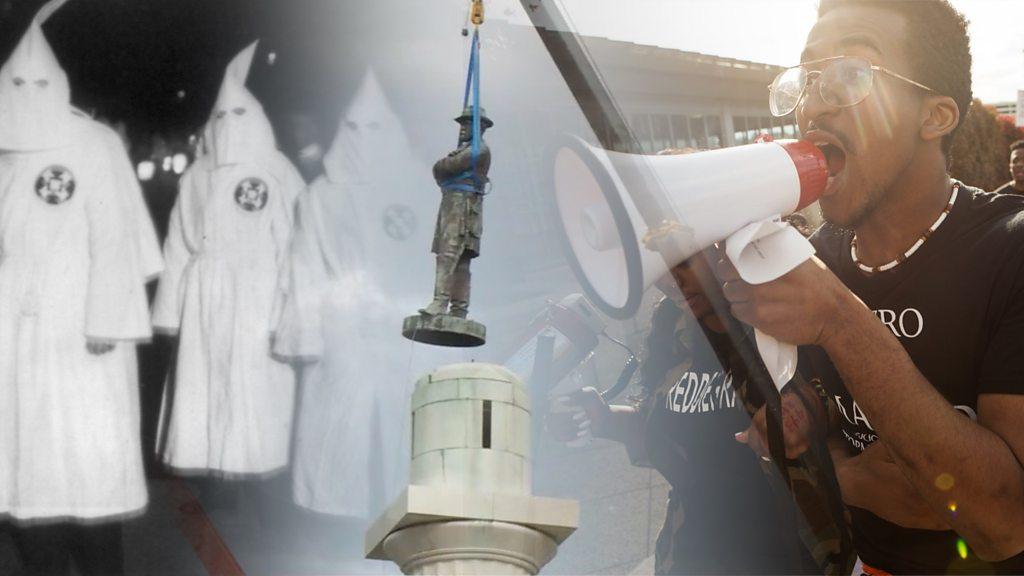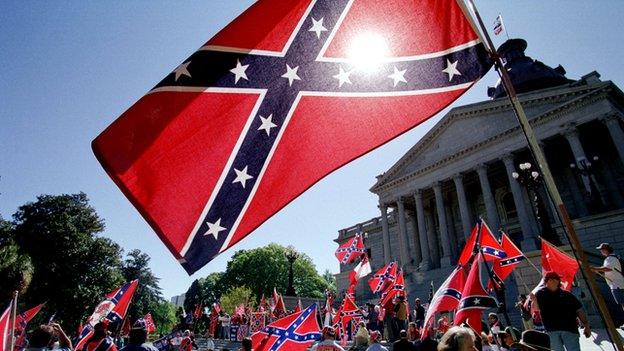Memphis defies state ban to remove two Confederate statues
- Published
Memphis removes Confederate statues
Memphis has become the latest US city to remove Confederate monuments, taking down two of the statues overnight.
The likenesses of rebel leaders Jefferson Davis and Nathan Bedford Forrest were gone hours after the city sold them to a private group.
Earlier this month, Tennessee state denied the city council's bid to get rid of the monuments.
So the council voted unanimously to sell downtown parkland, paving the way for the statues' removal.
The plot was acquired on Wednesday evening by a non-profit organisation, Memphis Greenspace, for $2,000 (£1,500), the Commercial Appeal newspaper reported.
Why do Confederate statues divide the United States?
Memphis Mayor Jim Strickland said in a statement: "History is being made in Memphis now.
"These statues no longer represent who we are as a modern diverse city with momentum."
Allow X content?
This article contains content provided by X. We ask for your permission before anything is loaded, as they may be using cookies and other technologies. You may want to read X’s cookie policy, external and privacy policy, external before accepting. To view this content choose ‘accept and continue’.
He said the monuments would be preserved in an undisclosed location.
The mayor said that Memphis Greenspace had agreed to keep the parks open to the public and maintain them.
The Sons of Confederate Veterans said in a Facebook post about the land sale: "This is a fix, and a scam, and if the state has one hair on its ass then people will be charged with felonies."
But a local pastor, Earle Fisher, told local news outlet WREG that the monuments were "racist relics".
Racism in the US: Is there a single step that can bring equality?
"It's a wonderful thing and it's something that we should celebrate," he said of the statues' removal.
The move comes three months before Memphis marks the 50th anniversary of the assassination there of civil rights leader Martin Luther King Jr.
Nathan Bedford Forrest was a secessionist general, slave trader and Ku Klux Klan leader. Jefferson Davis was president of the Confederacy during the American Civil War.
Confederate statues have become lightning rods in recent months for a national debate over race and politics.
A number of the statues have been purged in US cities since a woman died in violent clashes as far-right activists rallied in Charlottesville, Virginia, in August.
- Published18 August 2017

- Published15 August 2017

- Published2 June 2017

- Published30 August 2013
